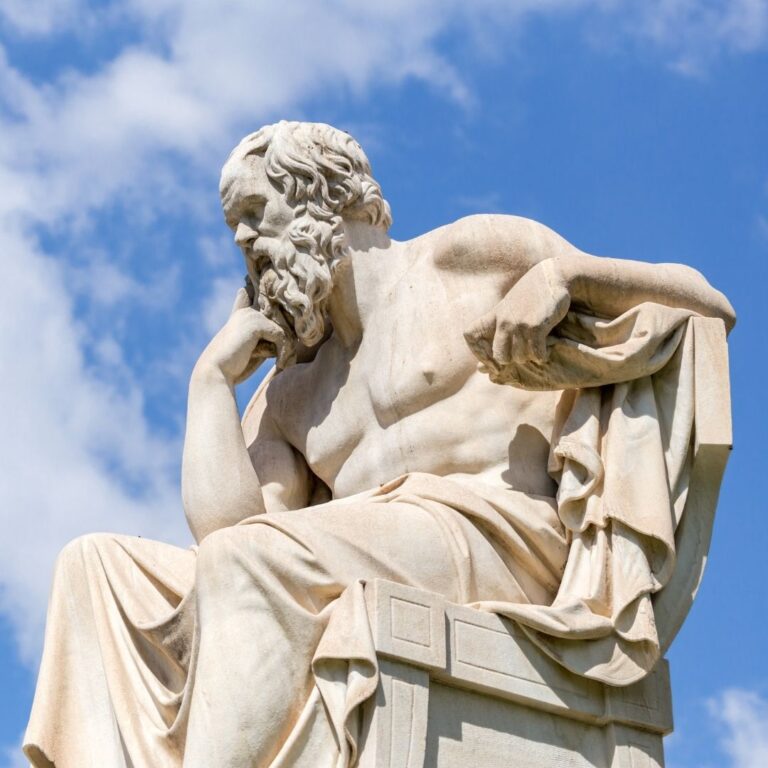Born in Athens in 470 or 469 BCE, Socrates was the son of a stonemason and a midwife. He grew up during the golden age of Pericles’ Athens, a time of great cultural and intellectual flourishing. Though details of his education are scarce, it’s believed he had a typical Athenian upbringing, learning music, gymnastics, and grammar.
Socrates served as a soldier in the Peloponnesian War, earning a reputation for bravery and endurance. However, it was his unique approach to philosophy that would make him a legendary figure.
The Socratic Method
Socrates didn’t write down his teachings. What we know of him comes from the writings of his students, most notably Plato. Socrates’ method was to engage in dialogues, questioning people’s assumptions and beliefs. This approach, known as the Socratic method, encouraged critical thinking and self-examination.
Key Philosophical Ideas
Socrates believed that “the unexamined life is not worth living.” He emphasized the importance of self-knowledge and virtue. He famously claimed to know nothing, but his relentless questioning exposed the ignorance of others, leading them to deeper understanding.
Trial and Death
Socrates’ unconventional views and critical approach made him enemies in Athens. He was accused of impiety and corrupting the youth. In 399 BCE, he was found guilty and sentenced to death. He chose to drink hemlock rather than renounce his beliefs.
Legacy
Socrates’ influence on Western philosophy is immeasurable. He is considered one of the founders of Western thought, and his ideas laid the groundwork for his students Plato and Aristotle. The Socratic method remains a valuable tool for teaching and learning.
Net Worth
It’s impossible to estimate Socrates’ net worth. He lived a simple life, focused on intellectual pursuits rather than material wealth. His legacy lies not in riches but in his enduring philosophical contributions.
Why Was Socrates Important?
Socrates challenged conventional thinking and encouraged people to question their beliefs. His emphasis on self-knowledge, virtue, and critical thinking has had a profound impact on Western culture. He remains an inspiration to those seeking wisdom and understanding.
Socrates’ life and teachings remind us that the pursuit of knowledge and self-examination are essential for a meaningful life. His legacy lives on through his students’ writings and the continued use of the Socratic method in education and discourse.

